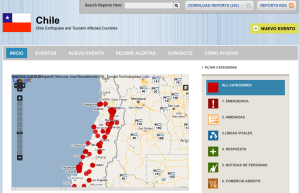 I’m headed to the 2010 Global Voices Citizen Media Summit in 10 days. Between now and then, I’ve been asked to put together a short overview of citizen media in Uganda, something I’ve had the opportunity to watch evolve from the pre-happy hour days to the citizen coverage of last September’s riots in Kampala and the burning of the Kasubi tombs.
I’m headed to the 2010 Global Voices Citizen Media Summit in 10 days. Between now and then, I’ve been asked to put together a short overview of citizen media in Uganda, something I’ve had the opportunity to watch evolve from the pre-happy hour days to the citizen coverage of last September’s riots in Kampala and the burning of the Kasubi tombs.
Blogren, I hope I’ve fairly represented our community. If there’s anything you want me to add, let me know by May 4 and I’ll do my best to share it with those at the summit.
###
Stories about citizen media often focus on things gone wrong: disputed elections, natural disasters, or, on a smaller scale, neighborhood potholes. When I first began covering the Ugandan blogosphere for Global Voices, I wondered why the bloggers I knew weren’t writing about Parliament or peace talks with the rebel Lord’s Resistance Army. I wasn’t alone: fellow expatriate Scarlett Lion asked where all of Uganda’s political bloggers were, and blogger Henry Owera berated his compatriots for not paying more attention to political events.
But when I started listening, really listening, to what Uganda’s bloggers were saying, I saw that the country’s citizen media are quite vibrant. They share stories about their childhoods. They take pains to define Ugandan slang for outsiders. They are creative writers. One is a communist; another is a reverend.
Fewer than one in ten Ugandans has access to the Internet. This puts a distinctly urban spin on the Ugandan blogosphere, which is made up primarily of students, journalists, and those who work in Uganda’s rapidly expanding tech sector. Most of Uganda’s rural bloggers are either expatriates or supported by external organizations, but there are a few exceptions, including aforementioned Reverend Willy Akena, who has been blogging since November 2006.
In 2007, a group of Danish filmmakers made a documentary about Uganda’s blogosphere as part of an MS Action Aid Denmark competition:
One of the video’s themes is that Ugandans feel relatively free to write what they want. Blogger 27th Comrade once declared, “Uganda is not one of them countries where bloggers are dissidents, telling the World what’s happening behind the stone curtain.” For the most part, this is true — despite occasional challenges to press freedom, Uganda’s media are largely free to criticize the government and to report unfettered. Bloggers, rather than being the sole source of uncensored news, provide additional nuance and depth to mainstream news. Last September, however, the situation changed.
On September 11, 2009, riots broke out in Kampala. The government instituted a media blackout, banning political programming and pulling radio stations off the air. In the absence of mainstream media coverage, Uganda’s bloggers became one of the only sources of information. Many of them were bewildered by the attention. During TEDxKampala last November, blogger Solomon King said, “One day I wake up and there’s an armored personnel carrier right outside my house. I tweet about it, and the next thing I know I’m a citizen journalist.”
The government has since eased restrictions on the media, but bloggers have continued to serve as citizen journalists, reporting on the burning of cultural heritage site Kasubi Tombs and the country’s impending anti-homosexuality bill. This doesn’t mean, however, that they have stopped writing poetry or discussing music. Uganda’s blogosphere is a rich and varied place, and there is room for both creative writing and, when the need arises, crisis coverage. As the Internet continues to spread more Ugandans are coming online, blogging about movies, telling jokes and wondering about the upcoming presidential elections. All of these things are equal parts of life in Uganda, and thanks to citizen media, we have the chance to read about them all.
